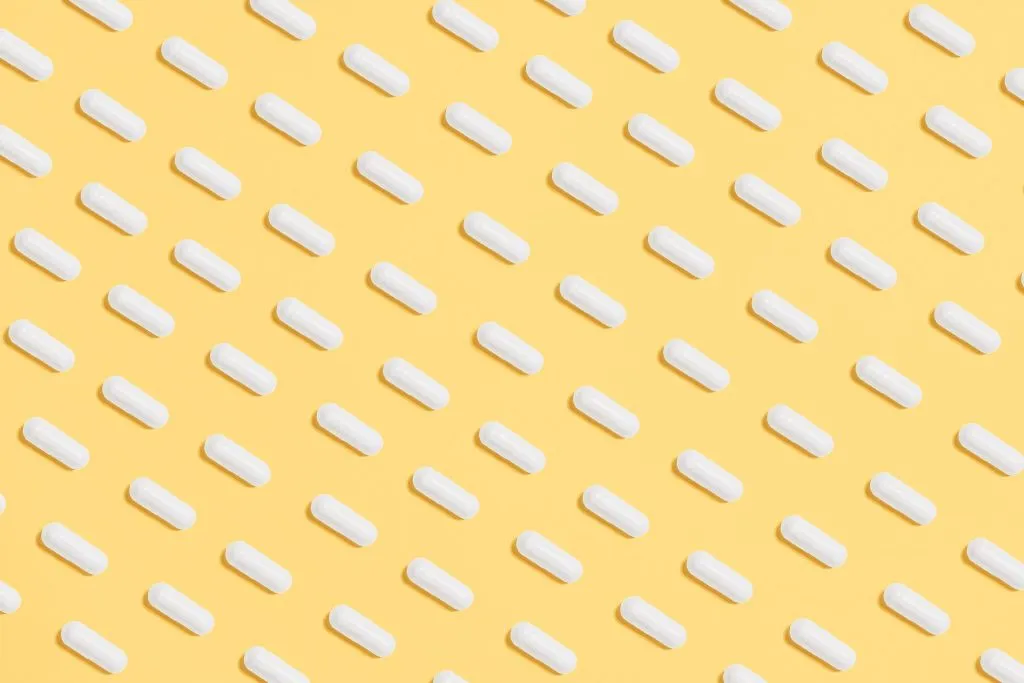Collagen has received a lot of attention recently. It’s been touted to improve skin texture, grow hair, strengthen joints, and boost gut health. Do collagen supplements live up to the hype? Let’s explore!
What is collagen?
Collagen is a type of protein in connective tissue including skin and joints. It’s the most abundant protein in the animal kingdom! There are many types of collagen (at least 16!). However, 80-90% of collagen in the human body consists of types I, II, and III. The skin consists of types I and III. Joints consist of type II. Collagen contains many amino acids (the building blocks of protein). It’s especially rich in glycine, proline, and hydroxyproline. Supplements often contain hydrolyzed collagen or small pieces of the collagen protein, also known as collagen peptides and collagen hydrolysate. The body absorbs these smaller pieces more easily. Collagen peptides also dissolve easily into cold and liquids alike. Gelatin is partially hydrolyzed collagen, which only dissolves in hot liquids.
Food Sources of Collagen
Collagen supplements usually come from animal sources such as cows, pigs, chicken, or fish. Vegan “collagen” typically includes precursors such vitamin C, plant-based amino acids, and skin-friendly minerals that help your body build collagen. Though, it may soon be possible to mass-produce collagen made by yeast and bacteria. You don’t have to take a supplement to reap the benefits! Foods including bone broth and gelatinous cuts of meat such as oxtail and chicken feet naturally contain collagen.
Benefits of Collagen Supplements
Before jumping into the very promising health benefits of collagen, a little disclaimer: there are relatively few studies out there evaluating the effects of collagen supplementation. Of these studies, many are sponsored by companies making collagen products.
Skin
Human studies suggest adding a small amount of hydrolyzed collagen (2.5 g daily) can slightly improve skin texture. Specifically, it can reduce the appearance of wrinkles and cellulite. It can also increase skin volume/elasticity/hydration.
Hair/Nails
A recent study showed that a supplement containing ~450 mg collagen from egg shell membrane increased hair density. It did not increase growth. Participants did not see improvements in nail growth, either.
Joints
Collagen supplementation appears to only slightly reduce joint stiffness and/or pain, at best. It may take 3-6 months to notice results. A common dose in these studies is 10 g per day.
Gut Health
Though collagen supplements claim to improve digestive health, there are very few studies examining these claims. It’s possible that supplementing with collagen may strengthen the intestinal lining, theoretically reducing the amount of food particles, bacteria, and toxins that can leak into the bloodstream.
Are Collagen Supplements a Do or Don’t?
The choice is up to you! Though benefits may be modest, collagen supplements are generally safe. Even if you don’t notice the supposed benefits, supplementing collagen counts toward your daily protein intake. Unflavored collagen peptides are usually low calories as well – 35 calories per 10 g serving. Note: collagen is low in branched chain amino acids necessary for muscle maintenance. It’s not the best protein powder to rely on for muscle building. However, we see no harm giving it a try if you’re experiencing hair loss from a calorie deficit, or wanting to give your skin a little boost!



